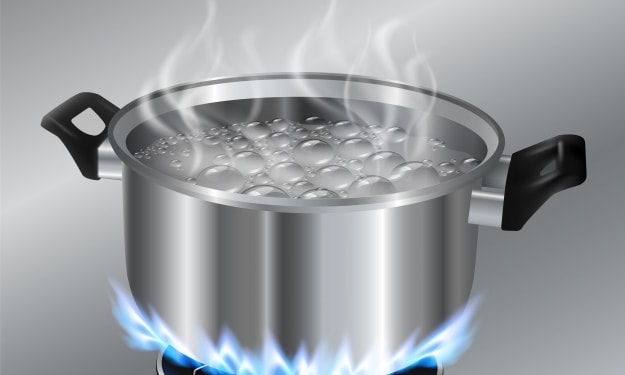What Are the Distinctions Between Heartburn, Acid Reflux, and GERD?
Understanding the contrasts between acid reflux, heartburn, and gastroesophageal reflux ailment includes understanding the connections between them.

Understanding the contrasts between acid reflux, heartburn, and gastroesophageal reflux ailment includes understanding the connections between them.
As per the American College of Gastroenterology, heartburn is a typical digestive complaint in the United States, influencing over 60 million Americans every month.
Heartburn isn't a condition all alone, and it has nothing to do with the heart. Instead, it is an indication of acid reflux.
If acid reflux symptoms happen regularly, it can show that an individual has gastroesophageal reflux disease(GERD).
Distinguishing acid reflux, heartburn, and GERD might be hard, because they may vibe the equivalent. However, understanding the distinctions can enable an individual to find the right treatment.
Heartburn, acid reflux, and GERD
The names acid reflux, heartburn, and GERD are regularly utilized conversely. They actually have altogether different implications.
Acid reflux is a typical ailment that can range in seriousness from mild to severe. Gastroesophageal reflux disease (GERD) is the chronic, progressively extreme type of acid reflux. Heartburn is a manifestation of acid reflux and GERD.
What is heartburn?
The term "heartburn" is misleading. The heart truly has nothing to do with the pain. Heartburn happens in your digestive system. In particular, in your throat. Heartburn includes mild to extreme pain in the chest. It's occasionally confused with heart attack pain.
The lining of your throat is more sensitive than the lining of your stomach. Along these lines, the acid in your esophagus creates a burning sensation in your chest. The pain can sense sharp, burning, or like a fixing sensation. A few people may depict heartburn as copying that climbs around the neck and throat or as uneasiness that feels like it's situated behind the breastbone.
Heartburn happens typically after eating. Twisting around or lying down can aggravate it feel.
Heartburn is very normal. It is assessed that more than 60 million people experience heartburn at least once per month. You might have the option to deal with your heartburn by:
- Evading spicy or acidic foods
- Losing weight
- Eating less fatty foods
- Stopping smoking
Mild, occasional heartburn can likewise be treated with medicines like antacids. If you take antacids above a few times each week, a doctor should assess you. Your heartburn might be a symptom of a progressively extreme issue like acid reflux or GERD.
What is acid reflux?
A round muscle known as the lower esophageal sphincter (LES) joins your throat and stomach. This muscle is accountable for tightening your throat after the food goes to the stomach. If this muscle is powerless or doesn't tighten appropriately, the acid from your stomach can reverse into your esophagus. This is recognized as acid reflux.
Acid reflux can induce heartburn and other symptoms that include:
- Burning and pressure that can reach out up the breastbone
- Bitter taste in the back of the throat
- Cough
- Sour taste in the mouth
- Sore throat
Symptoms of acid reflux
Heartburn is the most widely recognized symptom of acid reflux; however, it doesn't show up for each situation.
Acid reflux also causes the accompanying symptoms:
- Trouble or pain while swallowing
- Terrible breath
- Breathing issues
- Nausea or vomiting
What is GERD?
GERD is the eternal type of acid reflux. It's diagnosed when acid reflux happens more than two times per week or causes inflammation in the throat. Long-term damage to the throat can prompt cancer. Pain from GERD could possibly be alleviated with antacids or other over-the-counter (OTC) medicine.
Symptoms of GERD
- Having a feeling that stomach substance have returned up to the throat or mouth, or regurgitation
- Terrible breath
- Heartburn
- Harm to tooth finish because of overabundance acid
- Diligent dry cough
- Inconvenience swallowing
- Chest pain
- Asthma
Medicines for GERD work to decrease the amount of acid in the stomach. They may not be powerful for everybody. A few people need surgery to help strengthen the LES.
Causes
The stomach is worked to withstand acid. The food pipe isn't, and when acid ascents into it, an individual encounters burning pain.
The muscle toward the finish of the food pipe is known as the lower esophageal sphincter. It can debilitate or relax, and conceivably cause acid reflux, for a few reasons.
For example, enormous amounts of pressure on the stomach can make the sphincter develop slack. Hence, acid reflux is regular in individuals who are overweight, obese, or pregnant.
Other reasons for acid reflux include:
- A kind of hernia called a hiatal hernia
- Eating late at night time or not long before bed
- Smoking or ordinary exposure to used smoke
- Alcohol consumption
- Eating huge meals
- Acidic beverages, for example, fruit juice
- Devouring high-fat or fried foods
Various medicines can also trigger acid reflux, including:
- Asthma medicine
- Hypertension medicine
- Antidepressants
- Antihistamines
- Pain relievers
- Sedatives
Diagnosis
A doctor is a decent place to begin for acid reflux or GERD diagnosis.
Assessments ordinarily start with a couple of inquiries and a survey of the individual's medical history. The specialist may recommend changes to the eating routine or medicines because these can impact symptoms.
If the manifestations persist, mainly any identified with swallowing, the doctor may work with a gastroenterologist, surgeon, or another healthcare professional to affirm a diagnosis.
Tests that can help diagnose GERD include:
Esophageal pH and impedance are observing. The doctor puts a narrow cylinder inside the food pipe for around one day to quantify acid levels.
Upper gastrointestinal (GI) endoscopy and biopsy. A doctor embeds a thin, tube-like camera down the food pipe to look inside the stomach and maybe take a tissue sample.
Esophageal manometry. This permits the doctor to measure muscle constrictions in the food pipe.
Upper GI series. A doctor checks X-rays to see if something inside the body, such as a hernia, is causing the acid reflux.
Bravo wireless esophageal pH observing. The doctor monitors acid levels utilizing a little capsule inside the food pipe and a receiver outside the body.
Treatment and prevention
Acid reflux and GERD are treatable with prescriptions, way of life changes, or both.
A few prescriptions for acid reflux include:
Prokinetics, a kind of doctor-prescribed medication that helps empty the stomach all the more rapidly. Alternatives include Reglan and Urecholine.
Antacids, which neutralize stomach acid. Alternatives include Tums, Rolaids, Pepto-Bismol, and Mylanta. Numerous brands can be bought online.
Proton pump inhibitors, a group of longer-term, professionally prescribed drugs that can decrease stomach acid. Alternatives include Nexium, Prevacid, and Prilosec.
H2 blockers, which diminish acid production. Alternatives include Pepcid, Axid, and Tagamet.
Weight loss can also assist with diminishing symptoms, as it decreases pressure on the food pipe.
Individuals should also make an effort not to eat late around evening time or rests not long after eating.
In certain instances of GERD, surgery may help strengthen the muscles in the gut.
Summary
Symptoms of heartburn are regularly confused with a heart attack; however, the two conditions are irrelevant. You should promptly call emergency ambulance service number if your heartburn uneasiness and chest pain changes or deteriorates and is accompanied by:
- Trouble breathing
- Sweating
- Dazedness
- Pain in your arm or jaw
These symptoms can be indications of a heart attack.
Some of the time, GERD symptoms can show the requirement for emergency medical treatment. These include:
- Encountering regular, powerful (shot) vomiting
- Experiencing issues breathing
- Experiencing issues swallowing
- Vomiting liquid with bright red blood or coffee ground-like substance
Not all heartburn requires medical care. Rare and mild heartburn can be treated with antacids and lifestyle changes, such as avoiding spicy nourishments. Incidental reflux isn't a reason for concern. You should counsel a doctor if you have heartburn at least two times weekly or if over-the-counter medicines don't relieve your uneasiness.
About the Creator
Dose Pharmacy
One of the most trusted and best online pharmacy in USA, which provide best genuine and generic medicine with free delivery on doorstep and 24 hours online customer support. one can simply buy medication online.
https://www.dosepharmacy.com






Comments
There are no comments for this story
Be the first to respond and start the conversation.